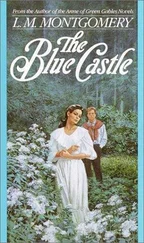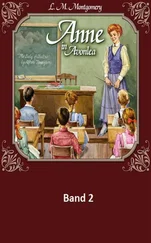I think God is just like my flash, only IT lasts only a second and He lasts always. We talked so long we got hungry and I went down to the sitting-room cubbord and got two donuts. I forgot Aunt Elizabeth had told me I could not have donuts between meals. It was not stealing it was just forgetting. But Ilse got mad at the last and said I was a she jakobite (whatever that is) and a thief and that no Christian would steal donuts from her poor old aunt.
So I went and confessed to Aunt Elizabeth and she said I was not to have a donut at supper. It was hard to see the others eating them.
I thought Perry et his very quick but after supper he bekoned me out doors and gave me half his donut which he had kept for me. He had rapped it in his hangkerchief which was not very clean but I et it because I did not want to hurt his feelings.
"Aunt Laura says Ilse has a nice smile. I wonder if I have a nice smile. I looked at the glass in Ilse's room and smiled but it did not seem to me very nice.
"Now the nights have got cold Aunt Elizabeth always puts a gin jar full of hot water in the bed. I like to put my toes against it.
That is all we use the gin jar for nowadays. But Grandfather Murray used to keep real gin in it.
"Now that the snow has come Cousin Jimmy cant work in his garden any more and he is very lonesome. I think the garden is just as pretty in winter as in summer. There are such pretty dimples and baby hills where the snow has covered up the flower beds. And in the evenings it is all pink and rosy at sunset and by moonlight it is like dreamland. I like to look out of the sitting-room window at it and watch the rabbits candles floting in the air above it and wonder what all the little roots and seeds are thinking of down under the snow. And it gives me a lovely creepy feeling to look at it through the red glass in the front door.
"There is a beautiful fringe of isikles along the cook-house roof.
But there will be much more beautiful things in heaven. I was reading about Anzonetta to-day and it made me feel relijus. Good night, my dearest of fathers.
"Emily.
"P. S. That doesnt mean that I have any other Father. It is just a way of saying VERY VERY dear.
"E. B. S.”
CHAPTER 16. CHECK FOR MISS BROWNELL
Emily and Ilse were sitting out on the side bench of Blair Water school writing poetry on their slates — at least, Emily was writing poetry and Ilse was reading it as she wrote and occasionally suggesting a rhyme when Emily was momentarily stuck for one. It may as well be admitted here and now that they had no business whatever to be doing this. They should have been "doing sums," as Miss Brownell supposed they were. But Emily never did sums when she took it into her black head to write poetry, and Ilse hated arithmetic on general principles. Miss Brownell was hearing the geography class at the other side of the room, the pleasant sunshine was showering in over them through the big window, and everything seemed propitious for a flight with the muses. Emily began to write a poem about the view from the school window.
It was quite a long time since she had been allowed to sit out on the side bench. This was a boon reserved for those pupils who had found favour in Miss Brownell's cold eyes — and Emily had never been one of those. But this afternoon Ilse had asked for both herself and Emily, and Miss Brownell had let both go, not being able to think of any valid reason for permitting Ilse and refusing Emily — as she would have liked to do, for she had one of those petty natures which never forget or forgive any offence. Emily, on her first day of school, had, so Miss Brownell believed, been guilty of impertinence and defiance — and successful defiance at that. This rankled in Miss Brownell's mind still and Emily felt its venom in a score of subtle ways. She never received any commendation — she was a target for Miss Brownell's sarcasm continually — and the small favours that other girls received never came her way. So this opportunity to sit on the side bench was a pleasing novelty.
There were points about sitting on the side bench. You could see all over the school without turning your head — and Miss Brownell could not sneak up behind you and look over your shoulder to see what you were up to; but in Emily's eyes the finest thing about it was that you could look right down into the "school bush," and watch the old spruces where the Wind Woman played, the long, grey- green trails of moss hanging from the branches, like banners of Elfland, the little red squirrels running along the fence, and the wonderful white aisles of snow where splashes of sunlight fell like pools of golden wine; and there was one little opening in the trees through which you could see right over the Blair Water valley to the sand-hills and the gulf beyond. To-day the sand-hills were softly rounded and gleaming white under the snow, but beyond them the gulf was darkly, deeply blue with dazzling white masses of ice like baby icebergs, floating about in it. Just to look at it thrilled Emily with a delight that was unutterable but which she yet must try to utter. She began her poem. Fractions were utterly forgotten — what had numerators and denominators to do with those curving bosoms of white snow — that heavenly blue — those crossed dark fir tips against the pearly skies — those ethereal woodland aisles of pearl and gold? Emily was lost to her world — so lost that she did not know the geography class had scattered to their respective seats and that Miss Brownell, catching sight of Emily's entranced gaze sky-wards as she searched for a rhyme, was stepping softly towards her. Ilse was drawing a picture on her slate and did not see her or she would have warned Emily. The latter suddenly felt her slate drawn out of her hand and heard Miss Brownell saying: "I suppose you have finished those sums, Emily?”
Emily had not finished even one sum — she had only covered her slate with verses — verses that Miss Brownell must not see — MUST NOT see!
Emily sprang to her feet and clutched wildly after her slate. But Miss Brownell, with a smile of malicious enjoyment on her thin lips, held it beyond her reach.
"What is this? It does not look — exactly — like fractions. 'Lines on the View — v-e-w — from the Window of Blair Water School.' Really, children, we seem to have a budding poet among us.”
The words were harmless enough, but — oh, the hateful sneer that ran through the tone — the contempt, the mockery that was in it! It seared Emily's soul like a whip-lash. Nothing was more terrible to her than the thought of having her beloved "poems" read by stranger eyes — cold, unsympathetic, derisive, stranger eyes.
"Please — please, Miss Brownell," she stammered miserably, "don't read it — I'll rub it off — I'll do my sums right away. Only please don't read it. It — it isn't anything.”
Miss Brownell laughed cruelly.
"You are too modest, Emily. It is a whole slateful of — POETRY — think of that, children — POETRY. We have a pupil in this school who can write — POETRY. And she does not want us to read this — POETRY. I am afraid Emily is selfish. I am sure we should all enjoy this — POETRY.”
Emily cringed every time Miss Brownell said "POETRY" with that jeering emphasis and that hateful pause before it. Many of the children giggled, partly because they enjoyed seeing a "Murray of New Moon" grilled, partly because they realized that Miss Brownell expected them to giggle. Rhoda Stuart giggled louder than any one else; but Jennie Strang, who had tormented Emily on her first day at school, refused to giggle and scowled blackly at Miss Brownell instead.
Miss Brownell held up the slate and read Emily's poem aloud, in a sing-song nasal voice, with absurd intonations and gestures that made it seem a very ridiculous thing. The lines Emily had thought the finest seemed the most ridiculous. The other pupils laughed more than ever and Emily felt that the bitterness of the moment could never go out of her heart. The little fancies that had been so beautiful when they came to her as she wrote were shattered and bruised now, like torn and mangled butterflies — "vistas in some fairy dream," chanted Miss Brownell, shutting her eyes and wagging her head from side to side. The giggles became shouts of laughter.
Читать дальше


